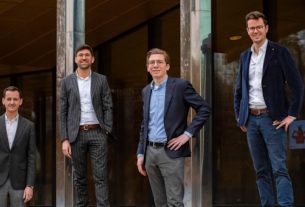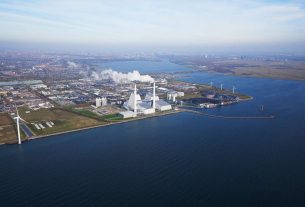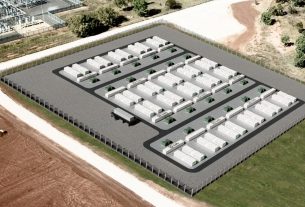The Netherlands – As the pursuit of a sustainable energy system becomes increasingly vital, RWE, a prominent energy company, is aligning its business strategy with ambitious climate goals.
RWE aims to reduce its emissions in line with the 1.5-degree reduction pathway and plans to phase out coal by 2030, with the ultimate goal of achieving climate neutrality by 2040. These objectives align with the Dutch government’s targets of reducing emissions by 55-60% by 2030 and 95% by 2050, as outlined in the Paris Agreement. To meet these targets, it is crucial to remove CO2 from the atmosphere, according to the Netherlands Environmental Assessment Agency (PBL) and the Intergovernmental Panel on Climate Change (IPCC).
BECCUS for negative CO2 emissions
RWE’s groundbreaking Bio-Energy Carbon Capture Utilisation & Storage (BECCUS) project aims to capture and store CO2 of sustainable, biogenic origin at its Amer and Eemshaven power plants. By 2030, this initiative is expected to result in negative CO2 emissions of 11-14 megatons, equivalent to 7-9% of the Netherlands’ annual CO2 emissions. However, to achieve the climate targets, the government still needs to address a gap of 12 to 36 megatons of CO2, according to the PBL. RWE’s BECCUS project plays a significant role in bridging this gap.
On June 20, 2023, RWE presented the BECCUS project in The Hague to government officials and industry representatives. The plan is to produce negative emissions and green CO2 starting from 2030, subject to technical and economic feasibility.
Roger Miesen, CEO of RWE Generation SE, emphasized the company’s commitment to removing CO2 from the atmosphere at an accelerated rate. RWE aims to transform its Amer and Eemshaven power plants into integral components of a closed CO2 cycle, breaking away from the dominance of gas and coal as fuel sources.
Power plants
In RWE’s vision, the production of negative emissions and biogenic CO2 goes hand in hand with a significant expansion of wind and solar power, battery storage, and hydrogen production. RWE recognizes the need for flexible and controllable power generation during periods of low renewable energy availability. This is where RWE’s power plants play a crucial role. The company plans to make its gas-fired power plants suitable for green or blue hydrogen production. Additionally, RWE is pursuing the BECCUS project to ensure a diversified energy mix.
In addition to electricity generation, power plants equipped with BECCUS offer the added benefits of negative emissions and sustainable, biogenic CO2. This CO2 can be utilized in the production of biofuels and plastics, replacing fossil-based production. Potential storage sites for the captured CO2 include gas fields in the North Sea and off the coast of Norway, where similar projects are already underway.
Carbon-Neutral electricity
RWE’s Amer power plant already operates with an 80% share of organic residual streams alongside coal, making a significant portion of its production carbon neutral. The company’s strategy involves integrating the power plants into both an organic cycle and a CO2 cycle in the coming years.
The BECCUS project leverages carbon molecules from biogenic CO2, aligning with the principles of the circular economy. Rather than being waste products, these molecules serve as valuable raw materials for industries such as chemistry, agriculture, forestry, and concrete production. Through collaboration with national and international suppliers, RWE maximizes the utilization of biomass and biogenic CO2, leading to a neutral or even negative CO2 balance sheet.




